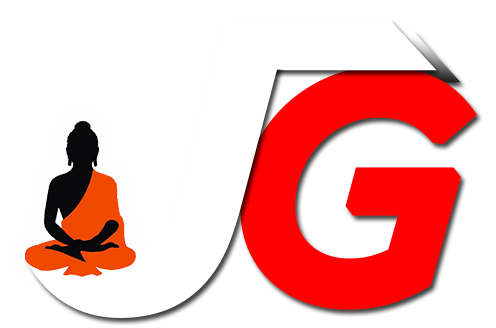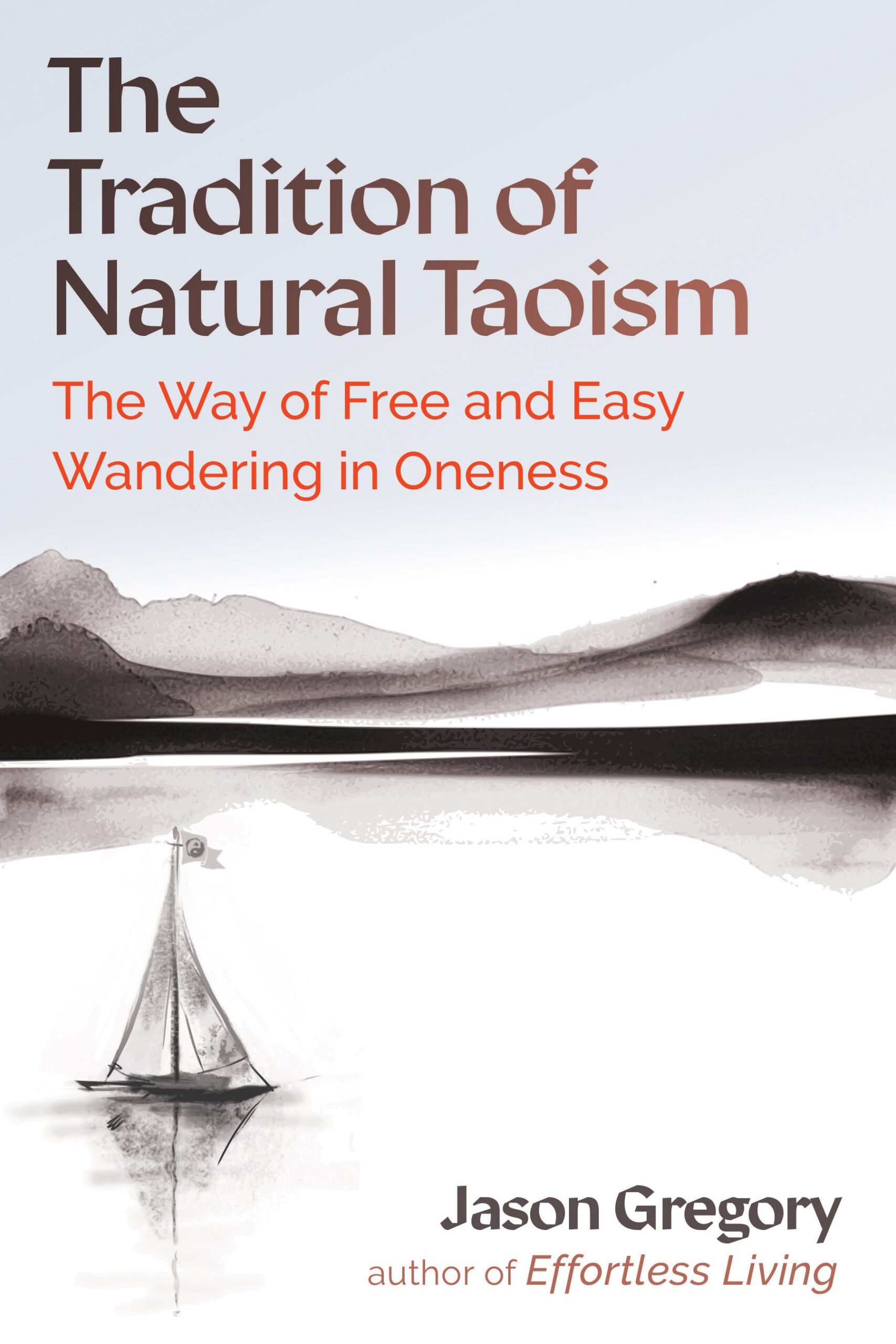Books for Studying Taoism
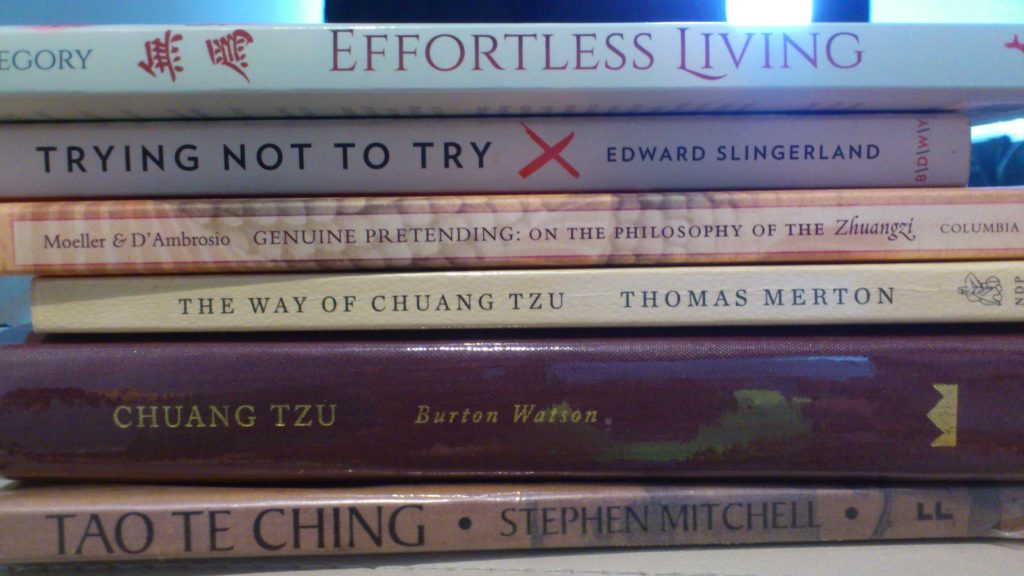
Books for Studying Taoism Taoism is a path often confused with being a conventional religion and primarily a form of spiritual cultivation concerned with martial arts and other Taoist arts. This is not completely untrue but its not the entire picture. All forms of Taoist spiritual cultivation and the religion are all based on its original philosophy going back 2,500 years to Lao-tzu and the Tao Te Ching. The problem with many modern spiritual movements is they have lost touch with the original philosophy of what they seek to practice and understand, modern watered down yoga is a good example. The Western version of yoga is just not yoga (watch my episode of Enlightenment Today on Yoga and the Eight Limbs of Yoga to understand the tradition). And this temperament is rife within those interested in Taoism. If you are not schooling yourself in the philosophy, or learning it in unison with your practice, then your practice will be handicapped. A human mind learns anything thoroughly when a framework for understanding has been studied. In regards to the Eastern spiritual traditions, it is best to study the philosophical framework from top to bottom so that your practice means something much deeper, so you can understand the intense process you are going through. Being absorbed in a spiritual process means we are in turn cultivating intelligence along the way. So it is not enough to go to a Taoist arts course, or your local yoga group, if we are just going to hang out with like minds and get distracted with mindless chit chat, turning the practice into a purely physical exercise or form of spiritual materialism. You have to throw yourself in the fire if you are serious about deep transformation. This means a lifetime of study when it comes to the spiritual traditions of the East. Though this shouldn’t be thought of as drudgery, but instead, it is an ever expanding joy you feel in your heart as those rich Eastern traditions will begin you to crack open your mind so it can blossom like a lotus flower. And to allow this transformation to bloom we need the right books to study. But I can tell you there are a number of books out there posing to be Taoist literature and then there are those that are authentic and sadly usually they’re the ones less read. To get a deep grasp of Taoism it is important to understand it in relation to the other great philosophies of the Warring States period of China. To understand the mind of Lao-tzu it is important to understand that period of time and the other sages that shared that time with him (if he did exist). One of the best books to understand the basis of Chinese thought is the Readings of Classical Chinese Philosophy by Philip J. Ivanhoe and Bryan W. Van Norden. Both Ivanhoe and Van Norden are esteemed scholars in the field of Chinese thought and have dedicated their lives to the study of its philosophy. This book includes all the classic texts of Chinese thought, including the works of Lao-tzu, Confucius, Mencius, Chuang-tzu, and more. This book is not just a great start but a great source book going forward. Even though Ivanhoe and Van Norden cover the classics in their anthology, it is good to get the classics on their own and some different translations to see some different scholarly perspectives. The Tao Te Ching is obviously imperative if you want to understand Taoism. There are a host of translations out there, some are authentic and some try to modernize the text. The second classic to study is the Chuang-tzu text. Some of the stories within the Chuang-tzu are something we could read in an afternoon but contemplate for a lifetime. He especially articulates the Taoist view of impartiality and mutuality as opposed to a mundane belief in good and bad, right and wrong, a righteous sense of morality, and a rationality that disembodies our mind and body. In my personal collection I own the Burton Watson translation which I love, but there are many great translations out there. A third classic to consider, though not considered traditionally Taoist, is the Mencius text by Mencius. Mencius is a Confucian but many scholars, and even myself, believe that much of his philosophy is Taoist rather than Confucian. To learn more about Mencius its best to watch my episode of Enlightenment Today on Mencius. On top of reading all the classics, there are a host of great contemporary scholars and teachers who explore Taoist thought very deeply. Philip J. Ivanhoe and Bryan W. Van Norden, who I mentioned earlier, have a host of great books exploring Chinese thought. Both have translated some of the classics, including the Tao Te Ching and the Mencius. Another scholar you need to know is Hans-Georg Moeller. Moeller has significantly shaped the way I think about Taoism. His recent classic Genuine Pretending,co-authored with Paul J. D’Ambrosio, is a must have in your library, especially if you want to understand the mind of Chuang-tzu. Moeller’s other books, such as The Philosophy of the Daodejing, Daoism Explained, and his translation of the Tao Te Ching are must reads. Edward Slingerland is another scholar you need to know. Slingerland has done a great job popularizing Chinese thought through his book Trying Not to Try. This book is a great exploration of wu-wei from the differing perspectives of the great sages from the Warring States period. But even though this book was for more of a mainstream audience, it still has great depth and is not just for beginners. Slingerland also has another great book on wu-wei called Effortless Action which is far more academic but that is precisely why it is a deep read. Personally I was introduced to Taoism through the philosophy and not the practices of Taoist arts,
Books for Studying Vedanta
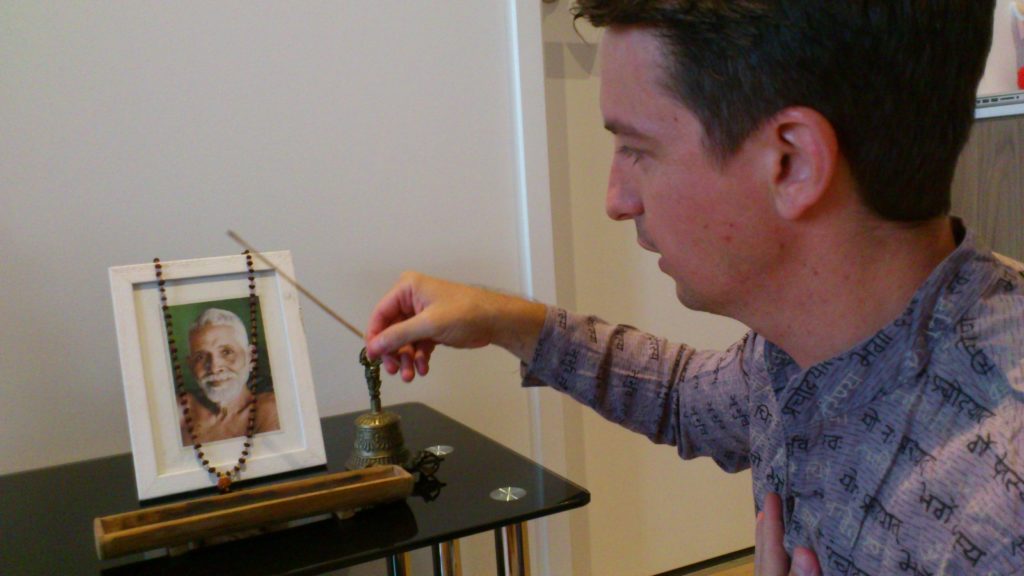
Books for Studying Vedanta I’m often asked what someone should do if they want to study Vedanta. My response to this question is like any other question, its not that black and white. People argue all day whether one should have a teacher, read the classics, or stop reading altogether. Again, there is no one method that fits all. But what I will say is if you want to dive deep into Vedanta then its important to study the classics since those classics are the foundation the tradition is built on. If you haven’t studied the classics then your mind will have a tendency to lose its way in your practice which leads people into all sorts of psychological problems such as spiritual bypassing. Even though, from the Vedic perspective we are not fundamentally the contents of our mind, those skilled adepts from thousands of years ago understood that our mind needs a framework for understanding anything to its nth degree. Our intellect can help us understand deeper concepts which unravels the mind and can have the potential to ultimately unravel the intellect. And when we speak about Vedanta we are speaking about the deepest spiritual concepts known to the human race (only other Eastern traditions compare to Vedanta such as Buddhism and Taoism). What teachers of Vedanta explain is its ancient wisdom is not learned knowledge but instead realized knowledge from great adepts. Whether you believe in those sorts of statements is up to you, but what we cannot deny is the science of mind and universe they realized (or created) rings true once we understand the philosophical framework. And this philosophical framework has got a bad rap from modern New Age teachers who ignorantly tell people to stop reading as if it is evil (but the truth might be they can’t really grasp the depth of Vedanta so they feel obliged to ridicule the classics). As a result, we have this growing trend of unintelligent spiritual seekers who follow a New Age “guru” with no discernment in a sycophantic manner. This type of “spirituality” is not really spirituality and gives it a bad name in the same way that evangelists give Christianity a terrible reputation. For this type of hypnosis and airy fairy woo-woo attitude to cease we have to become sincere in studying the classics as if our life depends on it, especially in Vedanta, let alone any Eastern philosophy. This is why in regards to spirituality tradition trumps New Age thought. And I can personally tell you that when you learn the tradition completely there is truly something about it that is hard to explain (this goes for any Eastern philosophy). Maybe its that ancient quality, as the tradition came from an ancient civilization of people dedicated to Sanatana Dharma (eternal tradition or way/Hinduism) and delivered a science that is still at the spiritual summit today. Reading the classics, then, does matter. They will benefit your practice going forward. Where to start you ask? Well you have to start with what Vedanta is based on, the Prasthanatrayi. This Sanskrit word refers to the three texts that make up Vedanta: the Upanishads, the Bhagavad Gita, and the Brahma Sutras. These three texts are what Vedanta is based on, so it would be absurd to not study these texts. Also, keep in mind, that there are three major branches of Vedanta which include Advaita (non-dualism), Vishishtadavaita (qualified non-dualism), and Dvaita (dualism). (Watch my episode of Enlightenment Today on Advaita Vedanta to know more). Which path you’re drawn to will depend on your temperament. But what is universal among all three schools is the study of the Prasthanatrayi. Now I can tell you there are a host of translations, and I’ve read quite a few, but I’d say do your homework before you jump in and purchase one. In relation to understanding Vedanta there is an extraordinary amount of books, too many for me to mention. But I will mention a few that will benefit your understanding of Vedanta. Vivekachudamani (Crest Jewel of Discrimination) by Shankara are a bunch of poems on Avaita Vedanta philosophy that are important to study. Alongside Shankara’s work, there are two Gita’s worth reading that dive into Vedanta, they are the Song of the Avadhut and the Song of Ribhu. Both texts are popular in the state of Tamil Nadu in India and are more focused on Advaita. They constantly point us back to the nondual source of our existence. Sticking with Advaita, I recommend reading Be as You Are by Sri Ramana Maharshi and I Am That by Sri Nisargadatta Maharaj, both of whom are regarded as two great Advaita Vedanta gurus from the 20th century. Another book is Sanatana Dharma by Sri Dharma Pravartaka Acharya. This book is about the eternal way (or dharma and culture) known in Sanskrit as Sanatana Dharma which we call Hinduism today. Sri Dharma Pravartaka Acharya follows the school of Vishishtadvaita and this book is a thorough study of Sanatana Dharma. Another great book is from modern Advaita Vedanta teacher James Swartz. His book The Essence of Enlightenment is a fantastic exploration of Vedanta from a man who follows the tradition honestly. Last, but not least, is a book written by Alan Watts called The Book. This special little book is an interesting look at Vedanta from the mind of a philosopher who was touched by the tradition. There are other books I could mention, like basically any book by Joseph Campbell or books by Huston Smith and Aldous Huxley, but there are just too many. I feel the books I have mentioned are enough for you to clear the mind and build a new framework in your mind from the ground up that has the potential to touch what Vedanta promises: the recognition of the Eternal Brahman as your true nature. SHARE
My Top 5 Books of 2017
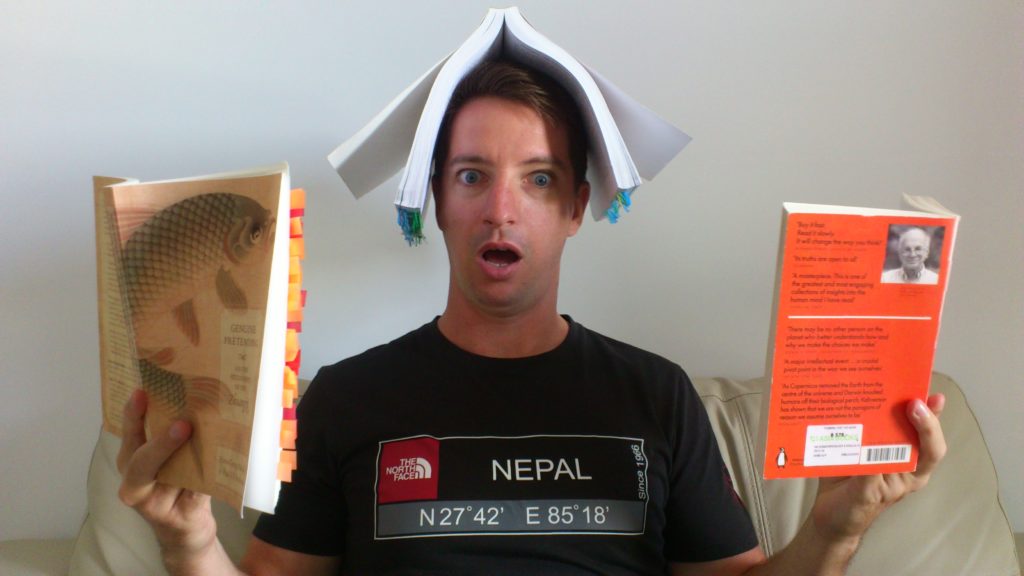
My Top 5 Books of 2017 2017 was a rich year for books on spirituality, philosophy, psychology, and optimal performance. Too many to get through. But if you use your time wisely then there is more than enough time to at least consume and digest five books a year. I use to set lofty goals of always reading ten books a year, but as a writer that is not possible with my commitment to my work. But its still a target I aspire to reach every year because, even if you hit the 5-10 mark each year, it means you haven’t been wasting your time on things that don’t matter. Many of us these days waste most of our time on entertainment. We scour digital devices night and day for the next soundbite to entertain us. Reading, on the other hand, puts the power back in your hands and it demonstrates a loud and clear NO to becoming a distraction junkie. Reading the right books will build the foundational pillars in your life (or in your mind) to cultivate intelligence, harness creativity, and experience prolonged equanimity. Below are the best books I read in 2017 (not all are published in 2017). Genuine Pretending: On the Philosophy of Zhuangziby Hans-Georg Moeller and Paul D’Ambrosio Chinese philosophy (alongside Indian philosophy) is always my central focus because of my dedication to to delivering ancient Eastern thought for modern minds. And when it comes to the ancient Daoist (Taoist) sage Zhuangzi (Chuang-tzu) I’ll read anything about his philosophy. When people speak about Daoism they often look to Laozi (Lao-tzu) for its gems. But if you have not encountered the genius of Zhuangzi then it is hard to get a complete picture of the depth of Daoism. As soon as I laid my eyes on Genuine Pretending it was immediately on my hit list. And I can tell you that Hans-Georg Moeller and Paul D’Ambrosio did not disappoint. They explain how the classic Zhuangzi text is not a one dimensional text. A lot of people believe the text is either a book on metaphysics, spirituality, strategy, or politics. But the authors believe it is all of the above and much more, especially when we take seriously (or not seriously) the humor component of the text. Genuine Pretending goes into the science behind humor and what that has to do with the spiritual depth of the Zhuangzi text. They have a thorough study of sincerity and authenticity, and how that relates to Confucian thought and Zhuangzi. This book explains that even though Zhuangzi is criticizing Confucian thought somewhat, he is really poking fun at it because of the sincere people we are supposed to become through high moral values and ideals that Confucius believes we should live up to. Zhuangzi skillfully knows these high rationalistic goals are not possible. Zhuangzi explains that in trying to create sincere people we actually create the opposite. Most importantly they introduce the Genuine Pretender, the joker in the pack, which in their opinion is a state of being Zhuangzi recommends for us to be in if we want to be a healthy and sane individual and live in a healthy and sane world. “A genuine pretender develops a capacity to playfully and skillfully enact social personae by looking at things, including oneself, from a ‘zero perspective.’” The Yoga Tradition: Its History, Literature, Philosophy and Practiceby Georg Feuerstein I’ve read a truckload of books on Yoga. Some have been done well and others struggle from a lack of understanding the philosophy of the great tradition. But there is no doubt that The Yoga Tradition is the best book on Yoga period. Georg Feuerstein is still one of the most underrated scholars on Yoga and Eastern thought out there. His understanding of classical Yoga is phenomenal. This book has often been referred to as the “Yoga phone book” for its size. But I will tell you this, you don’t want the book to end once you dive in deep. Feuerstein explores everything about the Yoga tradition to its nth degree. Actually, he covers a lot more than that. He also does a fantastic job in covering Vedanta and Samkhya philosophy. He takes you through the whole history of Hindu thought, not just Yoga. Be careful though, this book is the real deal. It is not about the Western version of Yoga that is a poor rip off of Hatha Yoga. This book explains what Yoga truly is and why it is important to follow the tradition and not its cheap imitations. As a writer, I find it inspiring to see the length Feuerstein went to produce a piece of work that will be around for hundreds, if not thousands of years. His scholarship is unmatched when it comes to Yoga. But it is his heart and wisdom that keep the fire of this rich tradition burning into the future. Thinking, Fast and Slowby Daniel Kahneman The relationship of psychology to spirituality, specifically Eastern thought, has been growing exponentially for decades. But I believe it is with the recent developments in cognitive science that a lot of explanations we are looking for in regards to spirituality and the nature of mind can be finally answered. My own work has also began to make the obvious connections between the Eastern philosophical traditions and cognitive science. You see this in two of my books, Fasting the Mind and Effortless Living, and also in a future unpublished book. And if you’re interested in understanding cognitive science thoroughly, then Kahneman’s Thinking, Fast and Slow is the perfect start, if not a complete picture thus far. Most importantly Kahneman thoroughly explains dual process theory, the two systems of cognition in our brain. These two systems are the key ingredient in understanding the workings of our mind and it is perfectly adapted to Eastern philosophy, which both make a complete science of mind. The Art of
